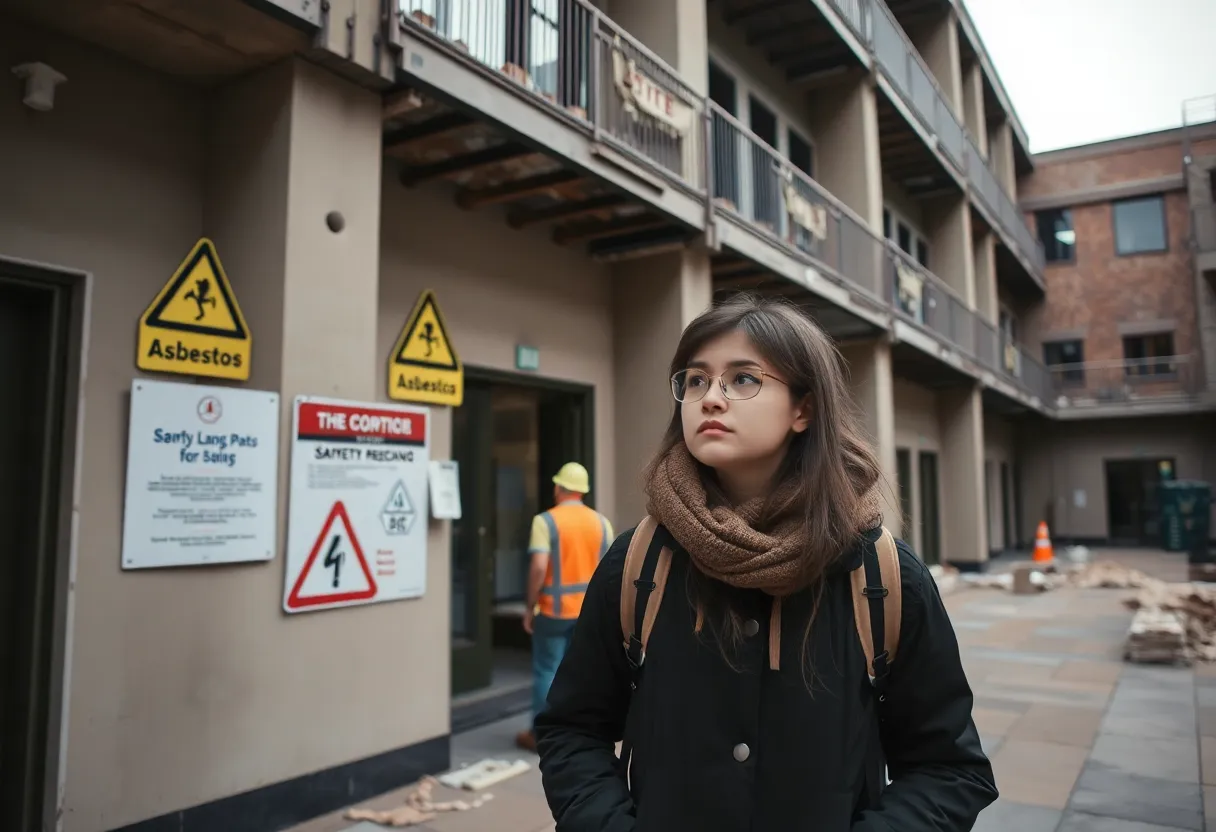News Summary
Asbestos found during energy upgrades at a renowned university causes disruption and raises safety alarms among students and faculty.
Asbestos Scare at Prestigious Greek University: Classes Disrupted and Safety Concerns Arise
In a shocking turn of events, hazardous material has been uncovered during energy upgrade work on the facade of one of Greece’s most esteemed universities. Following the detection of asbestos embedded in exterior panels, access to the affected faculty has been strictly limited to safeguard the health of students, professors, and staff members.
Alert Issued After Inspections Reveal Asbestos
The university’s administration acted swiftly, implementing access restrictions after initial inspections confirmed the presence of asbestos. While inspections on the interior of the building did not reveal further contamination, the faculty’s closure is causing significant disruptions to eleven ongoing departments, including Literature, History-Archaeology, Psychology, Philosophy, and several foreign language studies.
The university community is reeling from the unexpected find, which has led to emotional outbursts from students voicing frustration over suspected negligence. Many students feel that the presence of such a hazardous material had gone unaddressed for far too long, blaming the lack of thorough inspections on the university’s past administration and government policies. This incident has ignited a passionate call for serious reform regarding infrastructure maintenance and safety checks within higher education institutions.
Immediate Action Taken as Cleanup Begins
To address the issue, a certified company has been contracted to undertake the careful removal of the contaminated panels, with the first phase of the operation already completed. This essential task involved isolating the building during the removal process to prevent any potential exposure to the remaining campus community. Testing results confirmed that there is no immediate danger, and air quality measurements indicate the interior is now free from asbestos.
Despite these promising updates, the Vice-Rector of Finance, Planning, Development, and Infrastructure, Dimitris Kousenidis, has cautioned that the possibility of asbestos lurking in other buildings still exists. Asbestos was a prevalent construction material used widely before its ban in 2000, which raises alarming questions about the safety of students and faculty in other university properties.
Call for Action to Ensure Safety and Modernization
The university has recognized the need to ensure all facilities are safe and has committed to conducting further inspections throughout campus buildings. However, the prospect of additional disruptions looms large, especially if more asbestos is discovered during these upcoming assessments.
In the meantime, students and faculty must adapt to the shift towards online learning as they navigate the uncertainty surrounding campus safety. The urgency of this crisis has galvanized student representatives, who are demanding extensive inspections, improved infrastructural upgrades, and enhanced fire and flood protections to avert similar situations in the future.
These demands reflect a broader concern about the current state of university infrastructure in Greece, leading to calls for significant investment in the modernization of campus facilities. Adopting a proactive approach would not only ensure safety but could also enhance the learning atmosphere for current and future students.
Future Safety Protocols in the Spotlight
The administration has vowed to keep the public updated on their findings throughout the ongoing energy upgrade work, and they remain committed to ensuring the safety of the Faculty of Philosophy before any plans for reopening are finalized. However, the lingering fear of undiscovered hazardous materials and the extent of necessary repairs have sparked a renewed sense of urgency among students and faculty alike.
As the university navigates this complicated situation, questions surrounding the face of higher education in Greece and the fundamental responsibility of institutions to protect their communities are more pertinent than ever. With heightened awareness now in place, the hope is that this incident could serve as a catalyst for lasting change and commitment to safety protocols within Greek universities.
The path ahead is uncertain, but the call for transparency, action, and safety resounds profoundly within this academic community.
Deeper Dive: News & Info About This Topic
HERE Resources
Van Isle Hazmat Inc. Faces Major Fine for Asbestos Violations
New Developments in Mesothelioma Cases Linked to Asbestos Exposure
As Demolition of Sioux City Auditorium Relentlessly Moves Forward, Asbestos Concerns Loom
Historic Zion Korean Church Set to be Relocated to Preserve Heritage
Grandfather’s Battle with Mesothelioma
Denver Contractor Sentenced for Asbestos Violations
California Wildfires Ignite Alarm Over Asbestos Exposure
Asbestos Scare at Abingdon Elementary School Prompts Concerns and Investigations
The Ongoing Asbestos Crisis at University of Charlotte’s Sanford Hall
California Couple Takes Legal Stand Against Asbestos Companies



















